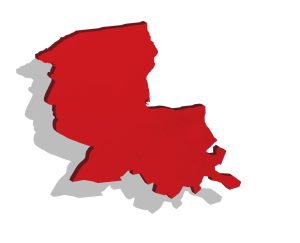Tulane professors join Louisiana budget reform task force
April 6, 2016
Friday can carry different meanings in New Orleans. For economics professors Steven Sheffrin and James Alm, it means a 90-minute drive to Baton Rouge to work on fixing the $750 million deficit in Louisiana’s budget.
Economics professors Steven Sheffrin and James Alm, who also serves as chair of the economics department, have been appointed to the Louisiana Department of Revenue’s Task Force on Structural Change in Budget and Tax Policy, which will advise the state legislature on possible reforms at the state level.
“Our group doesn’t have that much more information [than the legislature], but maybe we have a bit more collective wisdom,” Sheffrin said.
The task force includes state officials, business representatives and economists that will work on a plan. Three positions were set aside for university economists, and include Louisiana State University professor James Richardson as well as Alm and Sheffrin. Richardson and Louisiana Department of Revenue Secretary Kimberly Robinson serve as co-chairs of the group.
Alm and Sheffrin have ample experience outside of the classroom, both having previous experience working on tax policy. Prior to coming to Tulane, Sheffrin did work on Proposition 13, a well-known property tax limitation in California, while also teaching at University of California, Davis.
Alm has worked on fiscal reform both domestically, in states such as Georgia and Colorado, as well as abroad in countries like Jamaica, Egypt and Indonesia.
Louisiana’s budget is in crisis. Before Hurricane Katrina, the state legislature decided to make some changes to the state tax system which called for exemptions on things such as food, prescription drugs and electricity. To compensate for that lost revenue, the state raised income taxes.
After Hurricane Katrina, the state experienced an influx of money for construction and recovery. With the new money, the state decided to lower the income taxes that were supposed to compensate for the decreased sales taxes.
“Other expenditures [were] going up, like health care costs, just naturally,” Sheffrin said. “As long as the economy’s doing okay, you can sort of get away with that, but we were living right on the edge.”
With the Great Recession just a few years later, Louisiana went into a severe deficit.
“Any time you’re living close to the edge, whether you’re a country, an individual or a state, you’re not going to be prepared for a calamity,” Sheffrin said. “You don’t have enough savings, you don’t have enough flexibility, so we need to build more flexibility into the system.”
The task force hopes to come up with some recommendations for tax and budget reforms by June, when there will likely be another special session of the legislature. Louisiana residents could see changes as result of the task force as soon as July 1.
“Some people think a main focus of the task force should be to undo the budget crisis,” Sheffrin said. “That’s not the charge of the task force. I think people think that [Louisiana’s fiscal system] needs more balance … whether that balance is achieved by cutting exemptions and cutting credits, or by raising tax rates, that probably is a main item of discussion.”
The budget crisis has threatened the Taylor Opportunity Program for Students, which supplies scholarships to 651 Tulane students.
“The only thing [about the budget crisis] that really affected me was the TOPS potentially being taken away,” said freshman Joel Epling from Slidell, Louisiana. “A lot of my friends are only going to college because of it.”
The group will attempt to protect education expenditures. The alternative, however, is to cut costs for health care.
“To say we’ll guarantee you, regardless of what the tuition is, the full amount, [is] nice, but it’s not clear the state can afford that,” Sheffrin said. “There’s a number of bills going on right now, being discussed, that would reform it.”









Leave a Comment